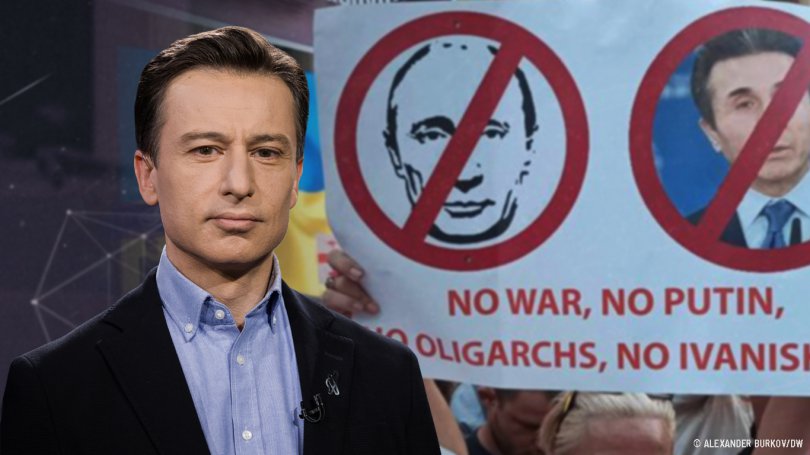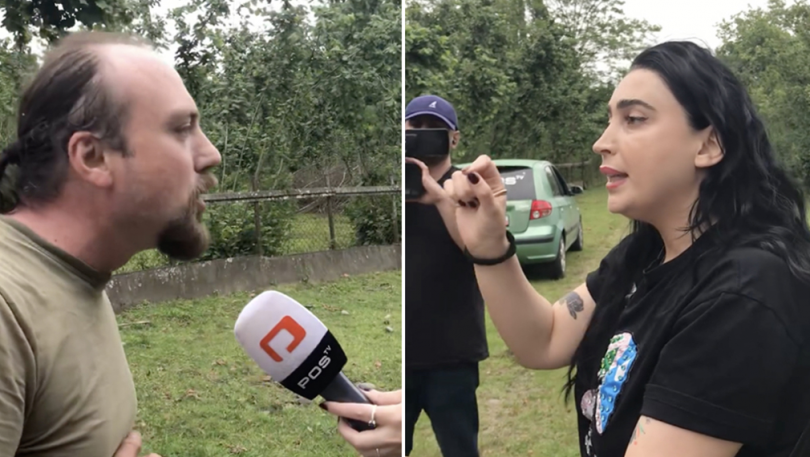
"Turning to the East: Georgia is ready to break with the EU" - reads a headline on the front page of Ria Novosty, Russia's main state news agency.
About 10 days ago, EU leaders informally told Georgian Dream leadership that Brussels was leaning towards a positive decision on Georgia's candidacy. The very next day, GD leader Irakli Kobakhidze announced the ruling party's backing for the Russian-style foreign agents legislation being pushed by People's Power, a GD offshoot linked to Bidzina Ivanishvili.
Something similar happened early last year - just before the EU was due to decide whether to grant Georgia candidate status, the government went ahead and jailed Nika Gvaramia, the CEO of the opposition Mtavari TV, while simultaneously stepping up its anti-Ukrainian and anti-Western rhetoric.
These facts point to a dire reality: Georgia’s ruling party deliberately sabotaged an EU candidate status for the country.
By intensifying anti-Western propaganda and encouraging a significant part of the pro-Western population to emigrate, GD wants to create a situation in Georgia in which Georgians themselves reject the European perspective.
But why would Ivanishvili not do the opposite and reap the political benefits of EU accession and allow the country to progress as well?
Ivanishvili's main objective is to stay in power at all costs. This is only possible if the Russian model - by definition incompatible with the European way of life - is fully established in Georgia. Ensuring that Georgia moves further away from the Western political agenda is an important part of this process.
And then there is Mr Putin, who is clearly happy with Ivanishvili and his policy of sabotaging Georgia's European prospects and appeasing Moscow.
Russia's goal today is not the complete occupation of Georgia and its separation from the West. Moscow needs Georgia in part to alleviate its isolation. Georgia must formally move towards both the EU and NATO, but never actually join either, while its leaders must deliver Russian messages on the world stage, as PM Garibashvili did in Munich or FM Darchiashvili at the UN.
They can also spy on the Ramstein meetings with the help of the Georgian defence minister there.
In short, steps such as the arrest of Mr Gvaramia, the imprisonment of former President Mikhail Saakashvili, the adoption of the Russian-style anti-NGO legislation or the daily bombardment of Ukraine are aimed at isolating Georgia from the West, but only to a certain extent. In fact, the policy of partial isolation is Ivanishvili's main policy, and in this context threatening Ivanishvili with isolation will not work.
Scaring Bidzina Ivanishvili by isolating the country could be compared to scaring a wolf by locking it in a sheepfold. In fact, this kind of partial isolation is exactly what Mr Ivanishvili thinks will further cement his authoritarian rule.
The only way to stop this is to shift the focus from Georgia's isolation to Mr Ivanishvili's personal isolation, including sanctioning him and his entourage, while at the same time granting Georgia candidate status. This will actually make it more difficult to maintain the drift toward the Russian orbit.
The huge crowds on the streets of Tbilisi on 24 February made it clear that, despite the avalanche of anti-Western propaganda, the overwhelming popular sentiment remains clear.
And as much as the GD leaders would like to say that this was just a solidarity rally in support of Ukraine and not a protest against the government, the opposite is true. And yes, it is clear even to GD supporters that standing with Russia is not good.
Mr Ivanshvili will certainly continue his policy of partial isolation from the West. But in the face of Ukraine's march to victory, the EU's punishment of Ivanishvili while it continues to embrace Georgia and the Georgian people continue to show resolve, it is doomed to fail.





